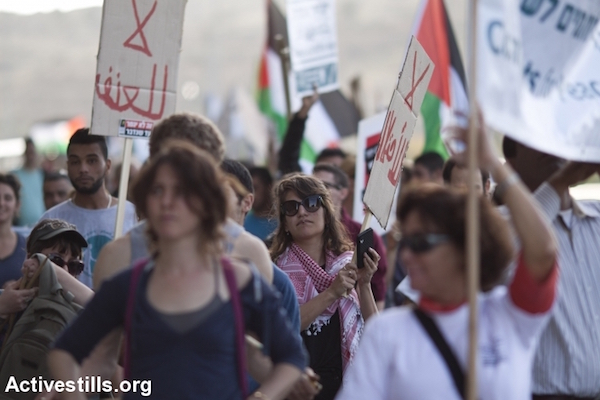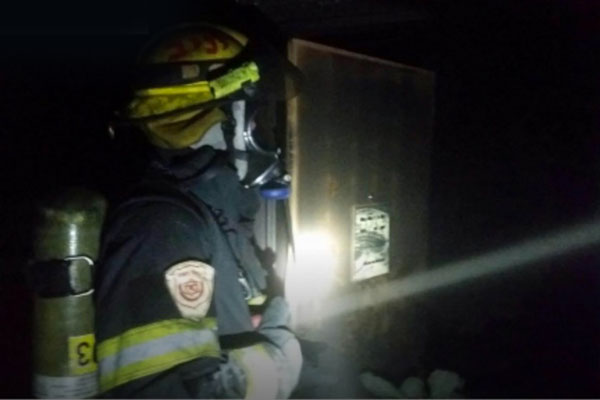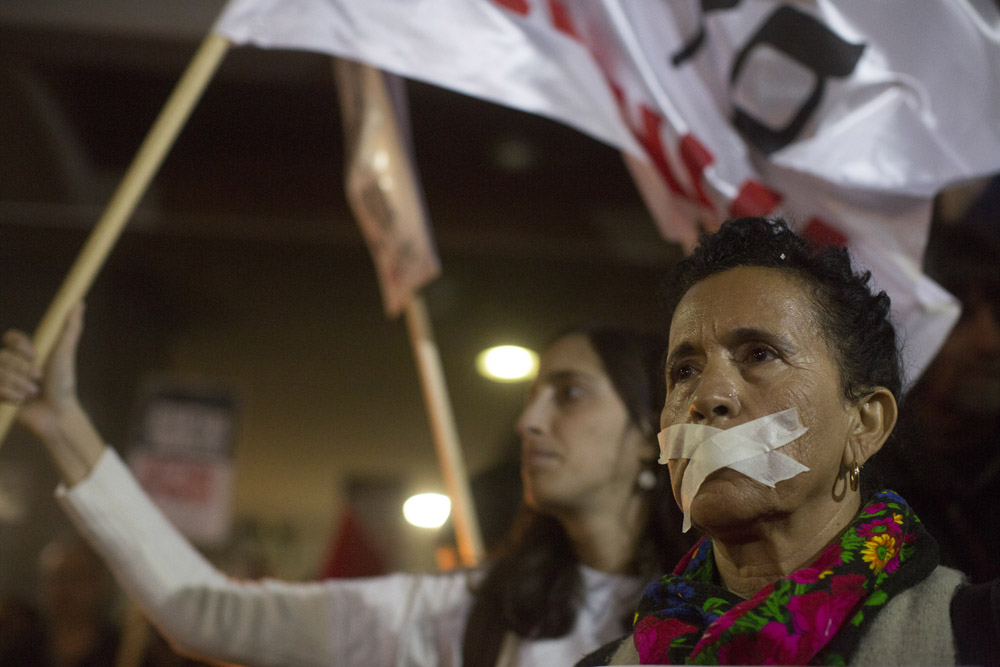The Israeli Left with which most Palestinians are familiar speaks the same language as the Right — of segregation and safeguarding a racist regime. The ‘other Left’ needs to develop a new discourse, and we should all hope it succeeds.

The Left in Israel has been subject to what appears to be a serious and concerted attack in recent weeks, directed primarily at anti-occupation NGOs and activists. And while the Israeli media has done a decent amount of reporting on the matter, and as members of the Left talk about a dangerous political turning point, the Palestinian Left hasn’t expressed any interest.
You won’t find much coverage about the attacks against the Israeli Left on Palestinian websites based in the West Bank, or even those inside Israel. There also hasn’t been much of an outcry by politicians from the Joint List, the third-largest political slate in Israel, which is mostly Palestinian but also enjoys the support of some Jews.
We must ask why so many Palestinians don’t see the events of recent weeks as an indication of changes that might affect their own struggle. Why aren’t they joining forces and rallying to support the persecuted Jewish Left, which has found itself under attack?
The answer is wrapped up in two failures that play off of one another: the inability of the Zionist Left in Israel to create a space for the “other Left,” non-Zionist Jews and Palestinians; and the failure of the “other Left,” the non-Zionists, to work harder to distinguish itself from the old Zionist Left.
While we are still internalizing this era of institutionalized ethnic segregation inside Israel, the Palestinians are looking to the UN, the EU, and international peace activists from Europe to Latin America to Scotland in an attempt to thrust the injustices being done to Palestinians to the top of the international agenda.
Desegregating the struggle
Palestinians rarely address Israelis and Israeli society directly. The tragic reality is that Palestinians, far too many Palestinians, do not see a place for Israelis in their struggle. They have not found a way reach Israelis without being filtered out by the regime’s various mechanisms, from the media to political echelon. It will always be difficult for Palestinians to trust Israeli partners, for it will always be easy for them to compromise their dedication to the Palestinian struggle. Buried somewhere in their Jewish privilege, a sliver of Zionism will probably always remain, even if most Israelis aren’t aware of it.
And can you really criticize that unwillingness or hesitance to engage when most of the Israeli Left lies somewhere between the Labor party and Meretz? When in the same week that 12 Palestinians were killed, most of the Left was busy speculating about whether or not an electrical short set fire to B’Tselem’s offices?

The Left that most Palestinians are exposed to is the mainstream Left. The Left that most Palestinians know is that which we hear from the rostrum in the Knesset, whose political language is almost identical to that of the Right. They are familiar only with the Left that is a central player in the Zionist project, and which supports and advances those same policies intended to preserve the place of one nation (the Jewish nation) over another nation (the Palestinian nation, but others as well).
It is the same Left that insists Palestinians are a minority in Israel, which recognizes a 20 percent minority within the Green Line but ignores the fact that far more Palestinians live under Israeli rule. And if they all had rights, the Palestinian “minority” would be closer to 50 percent. The same Israeli Left that believes the conflict can be resolved through the paradoxical idea of a Jewish and democratic state, and which continues to talk about a two-state solution along ’67 lines as if that is still happening. True, that Left uses less violent language, and even less violent actions (when it’s not in power, at least), but always within the confines of the Zionist discourse and Herzl’s vision.
That is the Israeli Left with whom Palestinians are familiar, a disappointing Left that refuses to process that the Zionist discourse it insists on will never defeat the Right’s Zionist discourse, which is far more authentic. It will always be 20 steps behind the dizzying pace of the steadfast Right, especially as the country rides on a wave of incitement against its Palestinian citizens, outlawing Palestinian political movements, and the increased persecution of human rights groups and Palestinian activists.
The Left needs to change

The Palestinians threw in the towel a long time ago and instead raised an apartheid flag — each for his or her own. Our reality is pulling us deeper and deeper into institutionalized ethnic segregation. And when most of the Jewish Left remains so far disconnected from the Palestinian Left, it has failed to challenge that reality we have been handed. We will not succeed at building any sort of cooperation like that, certainly not any type of cooperation that can convince Palestinians they have a partner with whom they can walk hand-in and build common values without the segregation of walls, sieges, race, ethnicity or religion.
The fact that we so long ago lost our moral compass and the understanding that every person has equal rights means that the Israeli Left needs to change. We need a different Left, one that builds cooperation which can cross the Israeli-Palestinian divide, and the Ashkenazi-Mizrahi divide. Only that kind of Left has any chance of posing a serious challenge to ethnic segregation in Israel.
That “other Left” is weak and disorganized today, and for the most part exists only in the minds of small groups of people on both sides of the ethnic, racial and political divides. Most Palestinians have never heard of such a Left. And in a time when a discourse of racism and segregation rules, that “other Left” must find a way to build a universal discourse in both Arabic and Hebrew, one which leaves behind the dilapidated slogans that have clung to us for decades.
Maybe, if we embark on such a path, we can hope to call this place home with pride, a place that improves the lives of all of its citizens, and which safeguards their dignity and security. That “other Left” has a long, difficult road ahead if it wants to survive the current assault with its head held high. We should all root for it and hope it succeeds and grows, even as it finds itself in the crosshairs of a regime increasingly reminiscent of our darkest days.
A version of this article first appeared in Hebrew on Local Call.
